Port Lincoln, South Australia is home to some of Australia’s best aquaculture, but the industry and the city are locked in a battle over its future.
Home to about 15,000 people, the region faces a water crisis and in just two years the water there could be completely undrinkable.
“The water situation is dire,” SA Water Minister Nick Champion told 7.30.
“We are running out of time and we must act.”
Residents there and on the wider Eyre Peninsula have been getting their drinking water from an underground aquifer, but Mr Champion said the aquifer was predicted to be undrinkable for about two years due to over-extraction.
In total, about 28,000 water users are at risk.
“The aquifers are salty. We have exhausted our capacity to tap Mother Nature for a water source,” he said.
“We just have to go ahead and look at the solution to it.”
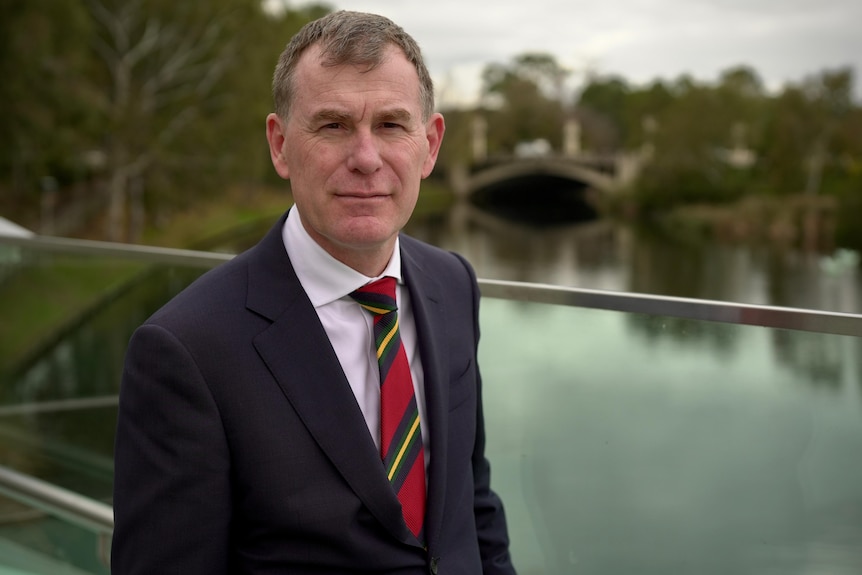
An aquifer is a geological formation that holds water in sufficient quantities to provide a source of water that can be drawn from a well.
The solution Mr Champion talks about is a desalination plant, but despite the urgent need, there is fierce opposition to the project.
Leaving the industry?
Port Lincoln is referred to as the seafood capital of Australia and Eyre Peninsula Seafoods CEO Mark Andrews is concerned the proposed site for the factory will put his industry at risk.
“I started this business from nothing,” Mr Andrews said.
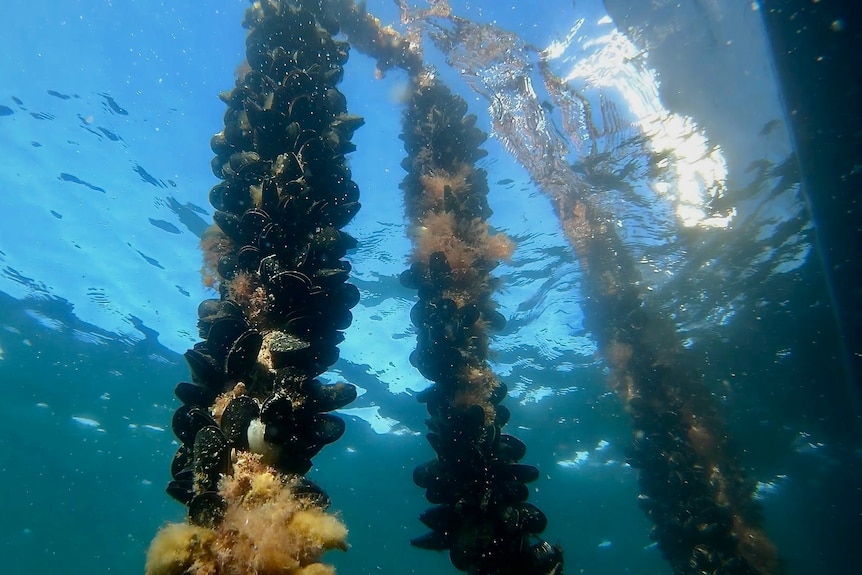
“Today, we are Australia’s largest mussel processor, farmer, trader representing 65 per cent of the industry, employing 76 people between the factory, office and marketing ships.
“Why would you want to put a desalination plant in an aquaculture area?”
Andrews said his business was built around the abundant natural spat, or baby mussels, floating in the waters near Port Lincoln, which have been earmarked for a large pipeline that will carry seawater to the desalination plant.
“Let’s call it a vacuum cleaner and that vacuum cleaner is taking the water through the desalination plant and my saliva goes with it,” he said.
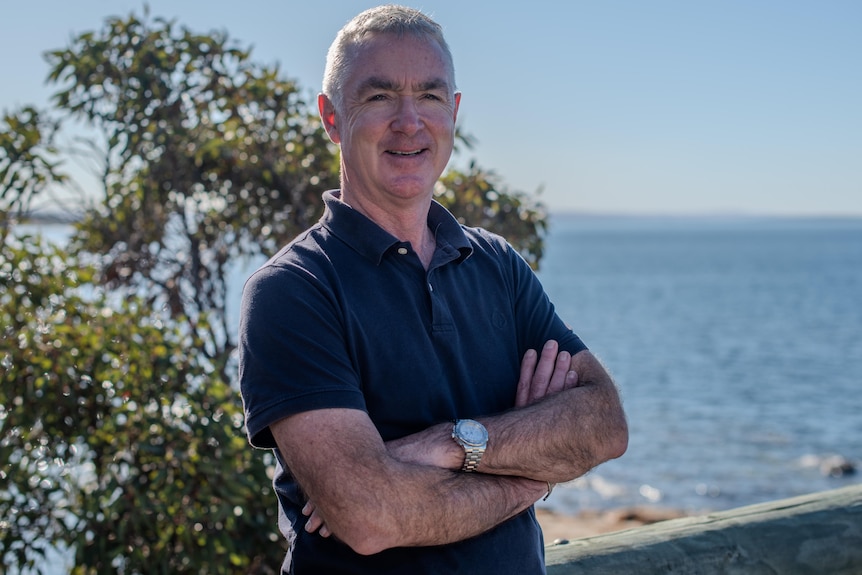
“It gets absorbed in the intake at the desalination plant and then, it’s not there for me to catch.”
‘Disastrous Effects’
Mr Champion said following industry feedback, the pipes would now be laid in deeper water at the location known as Billy Lights Point.
He says government scientists have exhaustively examined the potential impact on aquaculture and that there would be none to spit on, while stagnant water would be a disaster.
“We could look into this forever if we wanted to, but we don’t have the luxury of time,” Mr Champion told 7.30.
“We’re going to run out of water on the Eyre Peninsula [and] will have disastrous effects on the people of the Eyre Peninsula, including the fishing industry.”
Billy Lights Point is the cheapest option to locate a desalination plant, costing about $313 million.
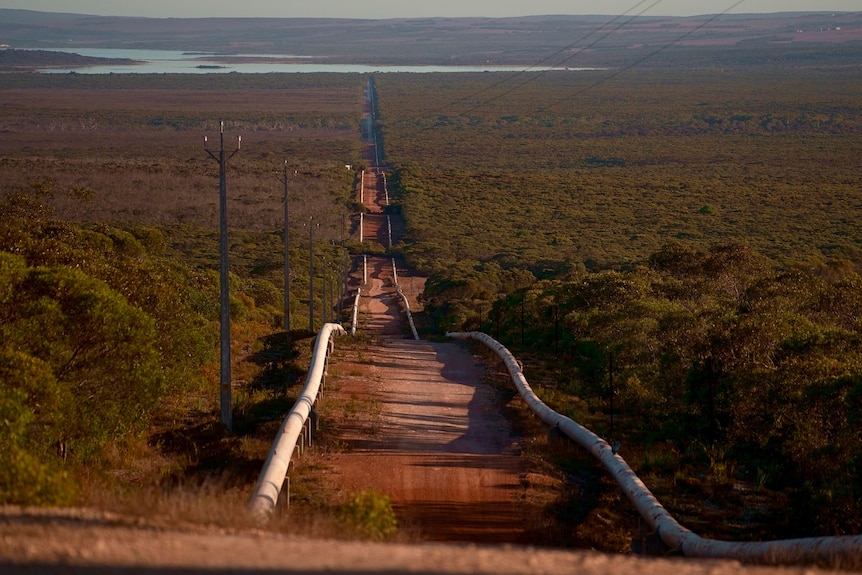
Another site was initially chosen further away from the aquaculture farms, but Mr Champion said it was abandoned because building there would cost at least half a billion dollars.
“It’s not a practical place to build one,” he said.
“It is 20 thousand[m] away from Port Lincoln, you have to pump the water uphill. There’s no power or water in … no pipes or anything.
“It’s a stupid investment, where we’d be throwing good money after bad.”
Andrews disagreed and says that given the region’s fishing industry is worth more than $200 million a year, a more expensive plant further away from aquaculture would be a good investment.
“Everyone on the Eyre Peninsula wants water security … a little extra money spent now for long-term growth and benefits for a region pays dividends,” said Mr. Andrews.
‘real disappointment’
The aquaculture industry is not alone in its struggle.
A state parliamentary committee recently traveled to Port Lincoln and Liberal MP Nicola Centofanti said it appeared most residents opposed the proposed Billy Lights Point location.
“We have a situation here where we are running out of time, the peninsula needs a desalination plant, but we have a site that has been chosen by the government that does not have the support of the community,” she told 7.30.
Ms. Centofanti said it was first noted in 2009 that the region would need desalination to secure its future water supply.
“I think there’s a real frustration in the community and we’re hearing through this committee that SA water and successive governments have been sitting on their hands for the better part of 15 years on this issue.”
Mr Champion admitted that time had been wasted.
“I think there’s been a lot of wishful thinking around the country, nice thoughts, frankly, not just in [the] the bureaucratic world or the political world.. but also in the community and it continues to this day,” he said.
Jamie Siviour is a farmer who lives about 90 minutes north of Port Lincoln. Its main water currently comes from the mined underground basin.
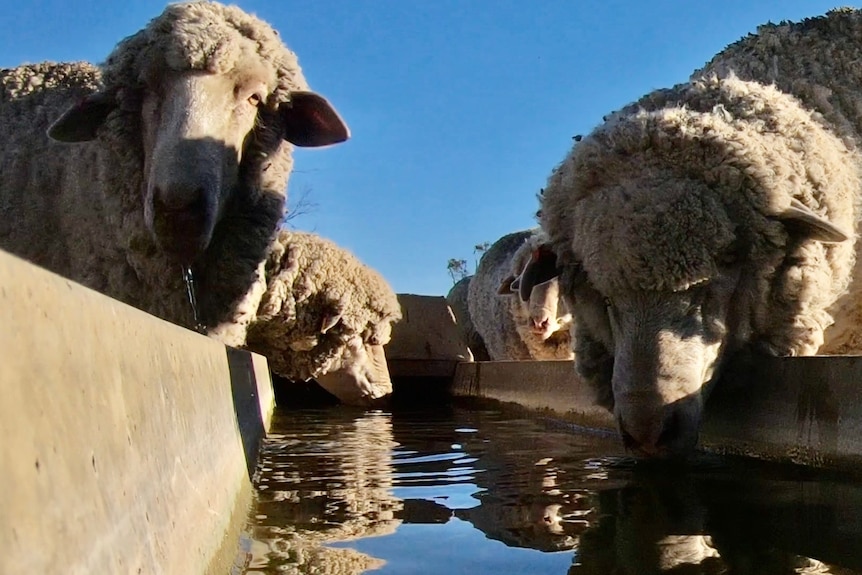
“Without mains water, we can’t run the sheep,” Mr Siviour told 7.30.
“We don’t have a river … this area around here is not conducive to dams. And the type of rainfall we get is usually smaller amounts and kind of a little soaking rain instead of torrential rains,” he said. .
Mr Siviour said he sympathized with the aquaculture farmers but was concerned about further delays in building the desalination plant and what could happen if the aquifer becomes undrinkable.
“It means that we will have to start reducing the number of sheep, even if we don’t have any sheep at all,” he told 7.30.
But Mr. Andrews says the government cannot afford to ignore the concerns of the aquaculture industry.
“We all want water here on the peninsula, but not in an aquaculture area, where there is danger,” he said.
Mr Champion said the Government would not reconsider the current location.
“I’m absolutely certain that what will happen is, in 10 years, we’ll go to Port Lincoln and wonder what all the fuss was about.”
Look 7.30Monday through Thursday at 7:30 p.m ABC view and ABC TV
Posted , updated
#Water #situation #dire #city #faces #water #shortage #years
Image Source : www.abc.net.au